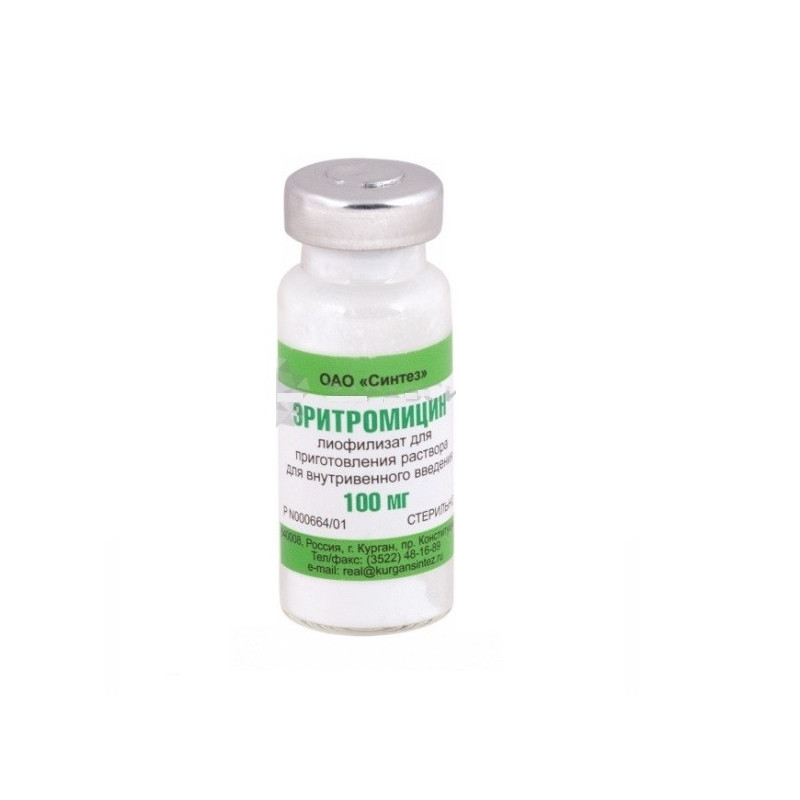



 All payments are encrypted via SSL
All payments are encrypted via SSL
 Full Refund if you haven't received your order
Full Refund if you haven't received your order
In the package 1 bottle.
Erythromycin is a bacteriostatic macrolide antibiotic that reversibly binds to the 50S subunit of ribosomes, which disrupts the formation of peptide bonds between amino acid molecules and blocks the synthesis of proteins of microorganisms (does not affect the synthesis of nucleic acids). When used in high doses, depending on the type of pathogen, it may exhibit a bactericidal effect.
Microorganisms are sensitive, growth is delayed when the antibiotic concentration is less than 0.5 mg / l, moderately sensitive - 1-6 mg / l, stable - 6-8 mg / l.
The spectrum of action includes:
Gram-positive microorganisms: Staphylococcus spp., producing and not producing penicillinase, incl. Staphylococcus aureus; Streptococcus spp. (including Streptococcus pneumoniae, Streptococcus pyogenes), alpha-hemolytic streptococcus (Viridans group), Bacillus anthracis, Corynebacterium diphtheriae, Corynebacterium minutissimum;
Gram-negative microorganisms: Neisseria gonorrhoeae, Haemophilus influenzae, Campylobacter jejuni, Bordetella pertussis, Brucella spp., Legionella spp., incl. Legionella pneumophila and others. Microorganisms: Mycoplasma spp. (including Mycoplasma pneumoniae), Chlamydia spp. (including Chlamydia trachomatis), Treponema spp., Rickettsia spp., Entamoeba histolytica, Listeria monocytogenes.
Gram-negative bacilli are resistant to the drug: Escherichia coli, Pseudomonas aeruginosa, as well as Shigella spp., Salmonella spp., Bacteroides fragilis, Enterobacter spp. and etc.
Symptoms: nausea, diarrhea, stomach discomfort; dizziness (especially in patients with hepatic or renal failure); abnormal liver function, up to acute liver failure, rarely hearing impairment.
Treatment: close monitoring of the respiratory system (if necessary, artificial respiration), acid-base status and electrolyte metabolism, ECG. Symptomatic treatment is necessary. Hemodialysis, peritoneal dialysis and forced diuresis are ineffective.
In a dry, dark place at a temperature not higher than 25 ° C.
4 years.
Erythromycin phosphate